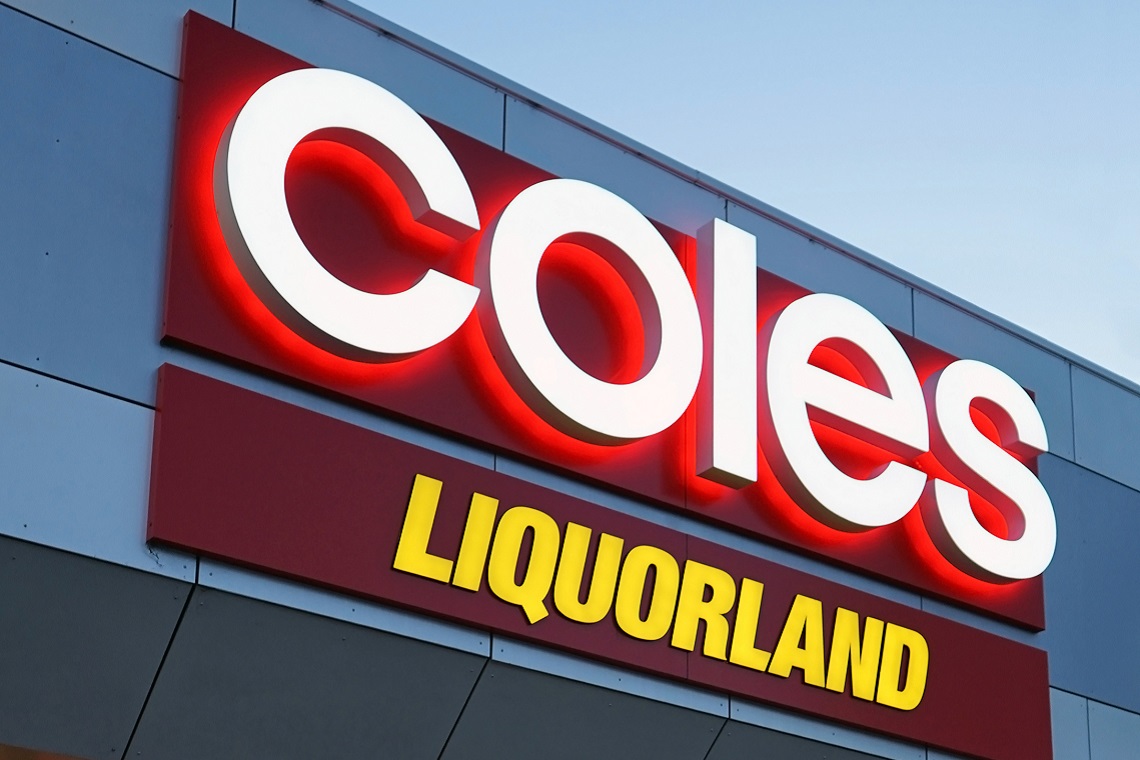Coles has reported its full year results for 2020, which have shown solid growth overall and a strong performance from its liquor division with eight per cent annual sales growth, including 20.2 per cent comparable sales growth in the fourth quarter.
Overall Coles’ full-year sales revenue increased by 6.9 per cent to $37.4bn, with sales revenue growth across all segments. Group EBIT increased by 4.7 per cent to $1.4bn, with the group saying that strong growth of 10.7 per cent in supermarkets EBIT was partially offset by lower fuel volumes in Express.
In detailing the performance of the liquor division, Coles said: “Liquor sales remained elevated throughout the fourth quarter as government restrictions on the opening of hotels, pubs, clubs and licensed venue operators remained in place for most of the quarter across most states.
“Trading at CBD and shopping centre stores was negatively impacted, while First Choice Liquor Market contribution to sales increased as customers preferred shopping in bigger format stores. Online sales were also strong, growing in excess of 70 per cent.
“Customers moved towards more value-oriented larger pack sizes in beer and spirits, impacting margins.
“Consistent with Supermarkets, Liquor incurred incremental COVID-19 related costs of approximately $5m, including thank you payments to team members, of which approximately $2m are non-recurring in nature.”
Coles’ liquor sales revenue for the year was $3.3bn, up eight per cent on last year, with comparable sales growth of 7.3 per cent.
The group also said the new leadership team under Darren Blackhurst, who joined in January 2020, has now completed a review of operations and “reset the Liquor strategic framework”.
Full details on Coles’ new Liquor Strategy will be outlined in National Liquor News’ fortnightly newsletter, which is sent out tomorrow. Click here to subscribe to the National Liquor News newsletter.
Coles also said it has now converted 61 per cent of its First Choice network to First Choice Liquor Market, with the converted stores continuing to perform strongly. In terms of its other stores a refreshed Liquorland concept store has been developed in Oakleigh, which Coles says “will help inform the next evolution of the Liquorland renewal program”.
In addition Coles said that its Vintage Cellars concept store in Ashburton “also continues to show positive signs”. In total Coles has 910 liquor stores in its network after 20 were closed and 20 opened over the last year.
Speaking about the year, Coles Group CEO, Steven Cain, said: ““In June 2019, Coles set out a refreshed strategy to transform our business and lay the foundations to succeed in our second century. Since that time, we have been presented with a number of unforeseen challenges including drought, devastating bushfires, and of course the ongoing COVID-19 global pandemic. This has provided the greatest test of our lifetime and we are experiencing things we never thought we would see in a supermarket, or for that matter Australia.
We owe a huge thank you to our team members, supply partners and the communities we serve for the way they have pulled together. I would also like to thank the federal and state governments for their speed of response, including establishing the Supermarket Taskforce, and unprecedented collaboration to help us continue to feed Australian families safely. There has, and will be, much to learn from COVID-19. We are determined to emerge as a better, stronger business and team.
The pace of change in the business is accelerating, particularly with our digital assets and capabilities, and we are demonstrating true agility on a week to week basis.
For our many shareholders, we have successfully executed the first year of our strategic plan, restored group profit growth for the first time in four years, and are on track to grow long-term shareholder value. The interim and final dividend payments totalling $767m importantly benefit millions of Australians.”
Looking at the year ahead for its liquor business, Coles said: “In Liquor, sales have remained elevated with any moderation of sales growth dependent on social distancing restrictions for hotels, pubs, clubs and licensed venue operators.
“Aside from incremental COVID-19 costs, Liquor also expects to step-up its investment in customer service in the coming 12 months as it implements its new strategy.”

